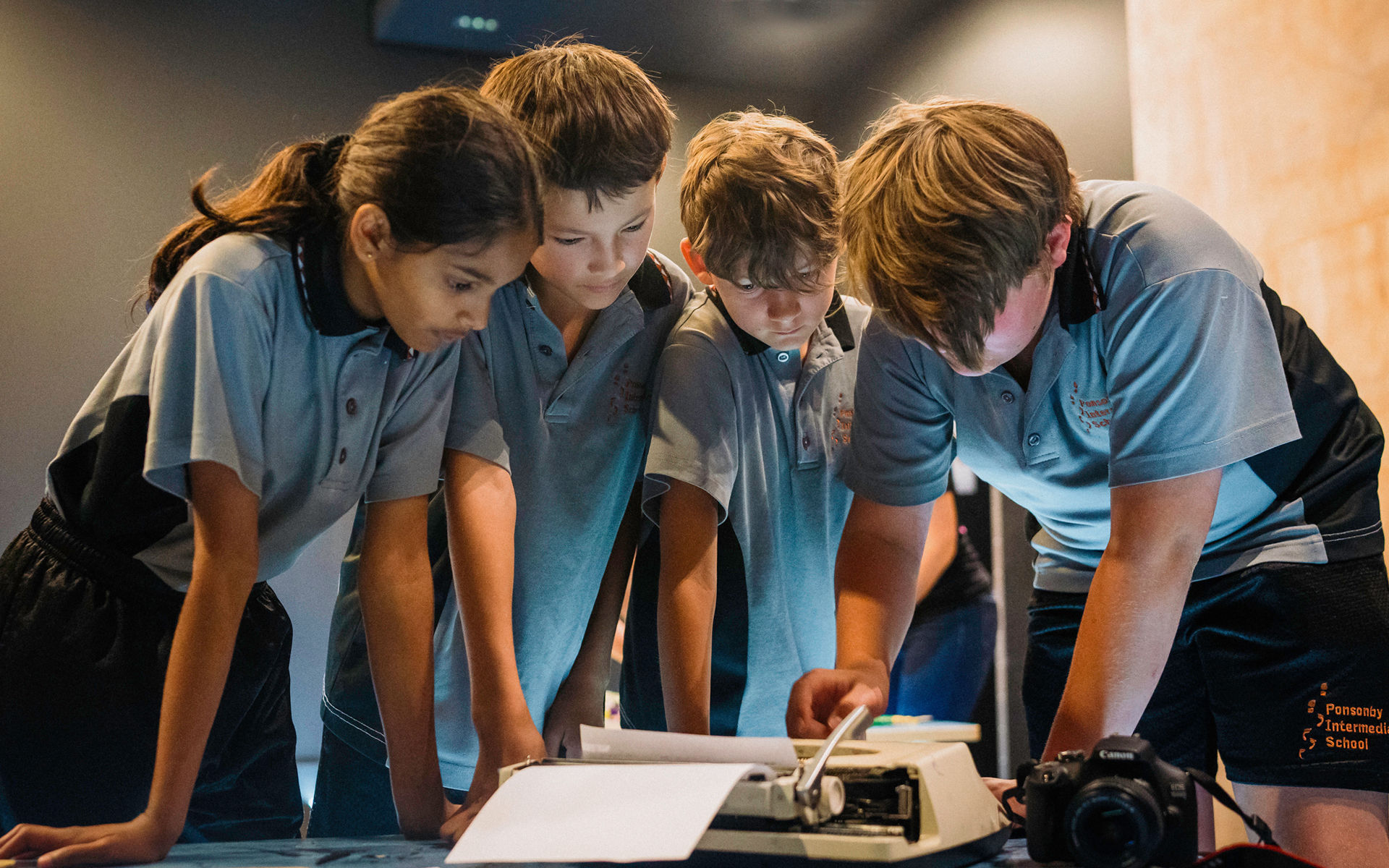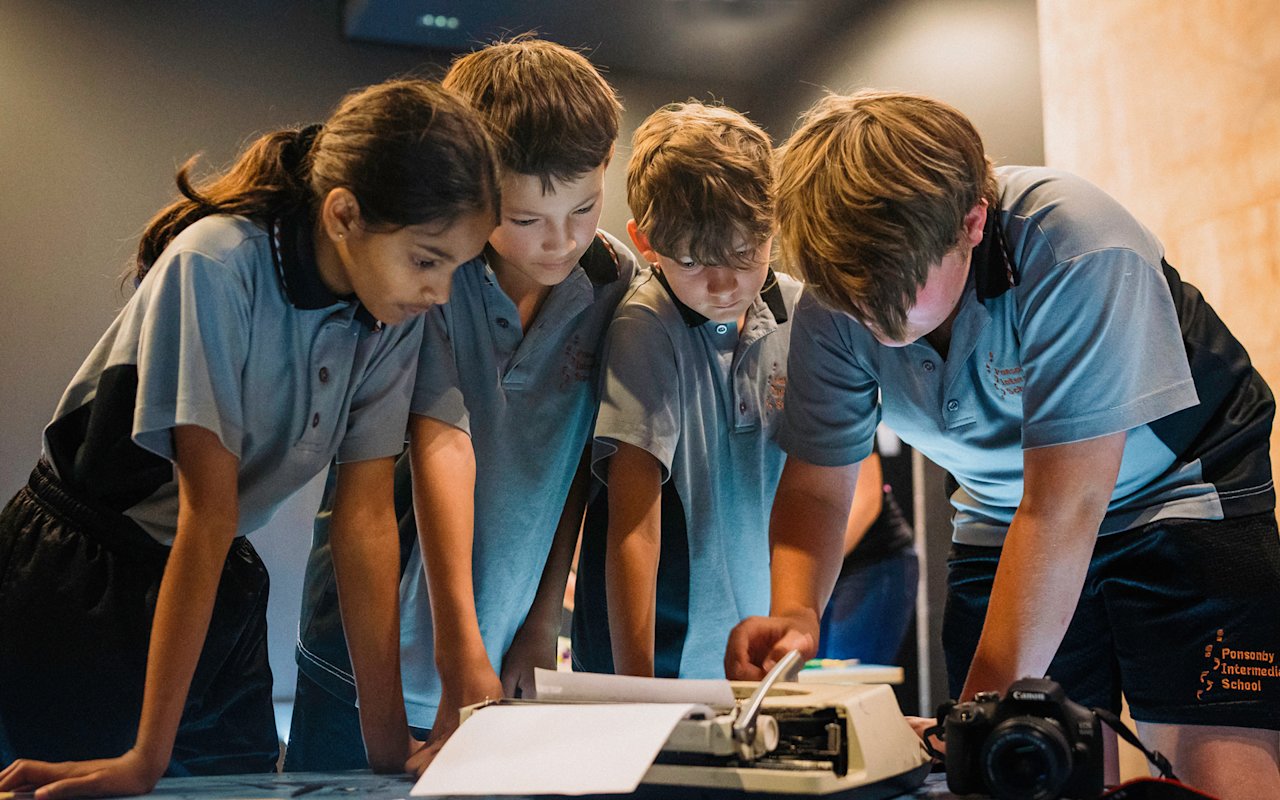Museums provide enriched education opportunities


Providing inspirational educational experiences
On 18 May we celebrate International Museum Day 2024, with a focus on the role cultural institutions play in providing holistic educational experiences. MOTAT interacts with more than 30,000 children from early childhood to year 13. Head of Education Julie Baker shares her thoughts on this role and says her team sees evidence of the benefit of MOTAT’s education programming in the lightbulb moments they witness every day.
The 2020 ‘Education Outside the Classroom (EOTC) in Aotearoa New Zealand – A Comprehensive National Study’ found both teachers and students value EOTC highly for its educational and social benefits. Museums and other cultural institutions are at the top of the list for providing enriching experiences. [1]
The feedback we get for our MOTAT educational programmes matches these sentiments. Teachers, caregivers and students consistently tell us about the lasting benefits of a visit to our museum and we observe deeper learning and understanding happening for students daily.
“I enjoyed using the phones that were back in the past years, and I also enjoyed writing with the quill to write my name on a piece of paper.” – Student
A museum has the resources to offer experiences not achievable in a classroom and a visit to MOTAT is an opportunity to bring lessons alive. We know students respond positively to experiences that are authentic and immersive, so we have a natural advantage in engaging students when they are transported to a different environment, surrounded by different stimuli, and exposed to unique experiences.
Students get direct hands-on engagement with a large collection of historical objects. We love seeing the reactions of students – especially when they get up close to our touch collection of old technology. Watching a student figuring out how to use a rotary dial phone is priceless!
Those experiences also lead to an enhanced learning dynamic between students and their adult supervisors – often the piece of technology is something the adults grew up with, and they are amazed when the students have no idea how to operate something that is so familiar to them. Museums are great at creating these opportunities for intergenerational learning and engagement.
There is increasing interest from schools for customised programmes, which we co-design with them. This trend is partly driven by Ministry of Education local curriculum initiatives, and museums are well placed to provide such bespoke programming. Teachers are time-poor, so the value we bring is in curating a learning experience using unique resources and knowledge. And we can draw on a “mind hive” of intellectual capital within our team of boutique knowledge holders.
We collaborate with teachers to align a visit with curriculum learning rather than duplicate what goes on in a classroom. We aim to enrich and augment learning and support teachers in the areas of science and technology – subjects we know many primary school teachers are nervous to approach.
“I believe several students who do not always achieve academic success were able to be experts and really show off their skills during the STEAM cell visit” – Teacher
Our reach, and the ways we engage with schools, has grown in recent years. Like many museums, disruption, due to the COVID pandemic, meant reinventing our offer to encompass distance learning. Our digital offer is now much stronger and includes online workshops offered to schools nationwide (and in the Pacific Islands).
The online offering, along with our established mobile STEAM Cells that make school visits, also helps to break down the barriers schools and families face in engaging with museums.
The rising cost of living is having a significant impact, with families often unable to afford school trips. Schools tell us the two most significant roadblocks to attending one of our onsite programmes, is the cost of transport and the lack of additional adults available to help supervise students on field trips.
The generosity of philanthropic organisations, who seek to support equity of access to EOTC experiences for all NZ schools, is vital to enabling access to those most affected by these barriers.
“My children have been expertly given an opportunity to see themselves as scientists. Yay!” – Teacher
We are proud to be opening our new Science and Technology Centre, Te Puawānanga, from 25 May this year to further enrich curriculum learning and show students that science is for everyone.
We believe that a visit to MOTAT should be inspirational. Indeed, the museum’s mission is to inspire the innovators of tomorrow and many education programmes feature stories of Aotearoa New Zealand innovations and the people who created them. We hope students leave here thinking they could be Peter Beck, Beatrice Tinsley or Colin Murdoch. Students believing that they can also be as innovative and inventive is the outcome we aspire for.
International Museum Day is a great reason to stop and take note of the role museums play in providing inspirational education experiences. In these challenging economic times, it is a reminder of what could be lost if support for cultural institutions is reduced. Immersive experiences, hands-on engagements and learning in authentic contexts are just some of the positive societal impacts a museum can have.
Aotearoa New Zealand has benefitted from a government-funded EOTC programme for more than 40 years – the fact it has survived successive governments, through periods of recession and in a highly competitive funding environment, speaks to its perceived value. Its existence is essential to being able to keep educating and inspiring school students in STEM (Science, Technological, Engineering and Mathematic) subjects.
Julie Baker has been MOTAT’s Head of Education for 9 years and has a background in mechanical engineering and extensive experience in teaching physics and technology. International Museum Day is an initiative of the International Council of Museums (ICOM), of which MOTAT is a member.
Published May 2024
[1] Data for the EOTC Comprehensive National Study was gathered from late 2017 throughout 2018. Data collection involved a national EOTC questionnaire (NEOTCQ) completed by school leaders and EOTC coordinators,’ specific EOTC inventories from a small sample of schools, and interviews with school leaders and teachers, students and LEOTC providers.